Show me all articles
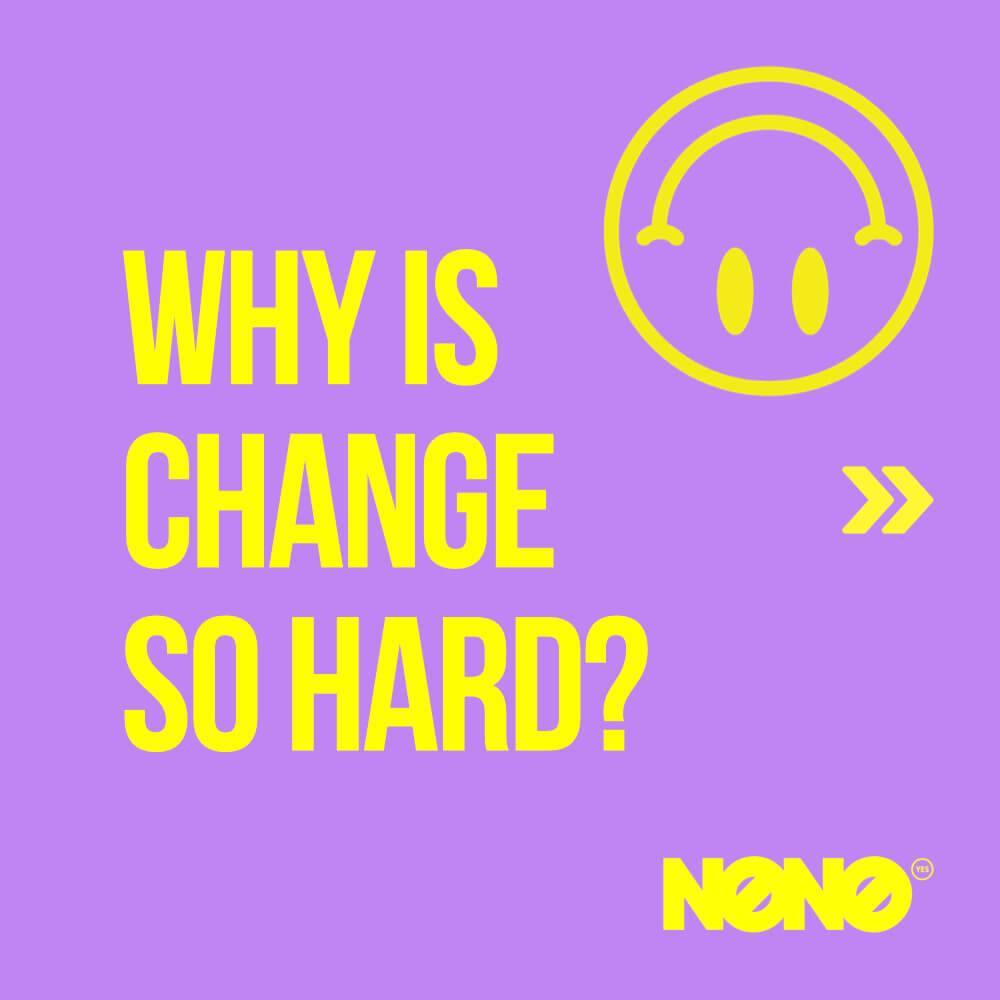
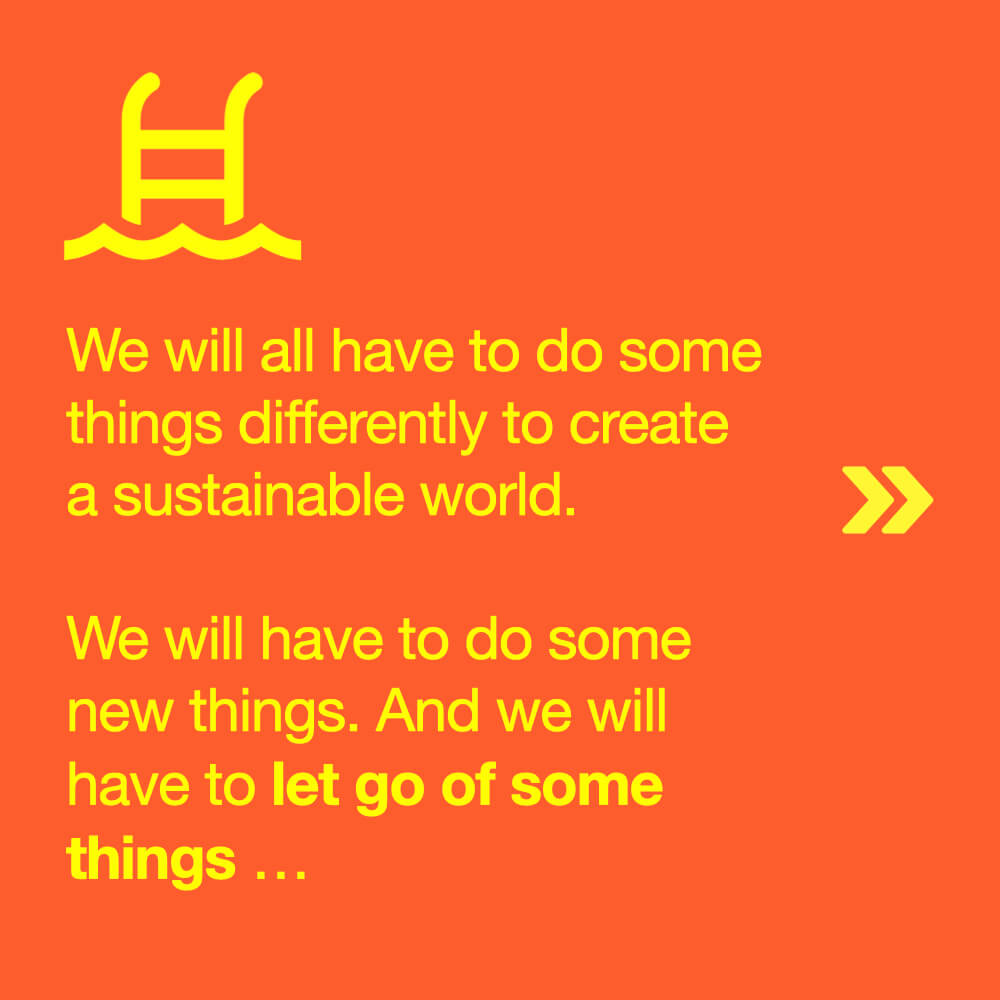
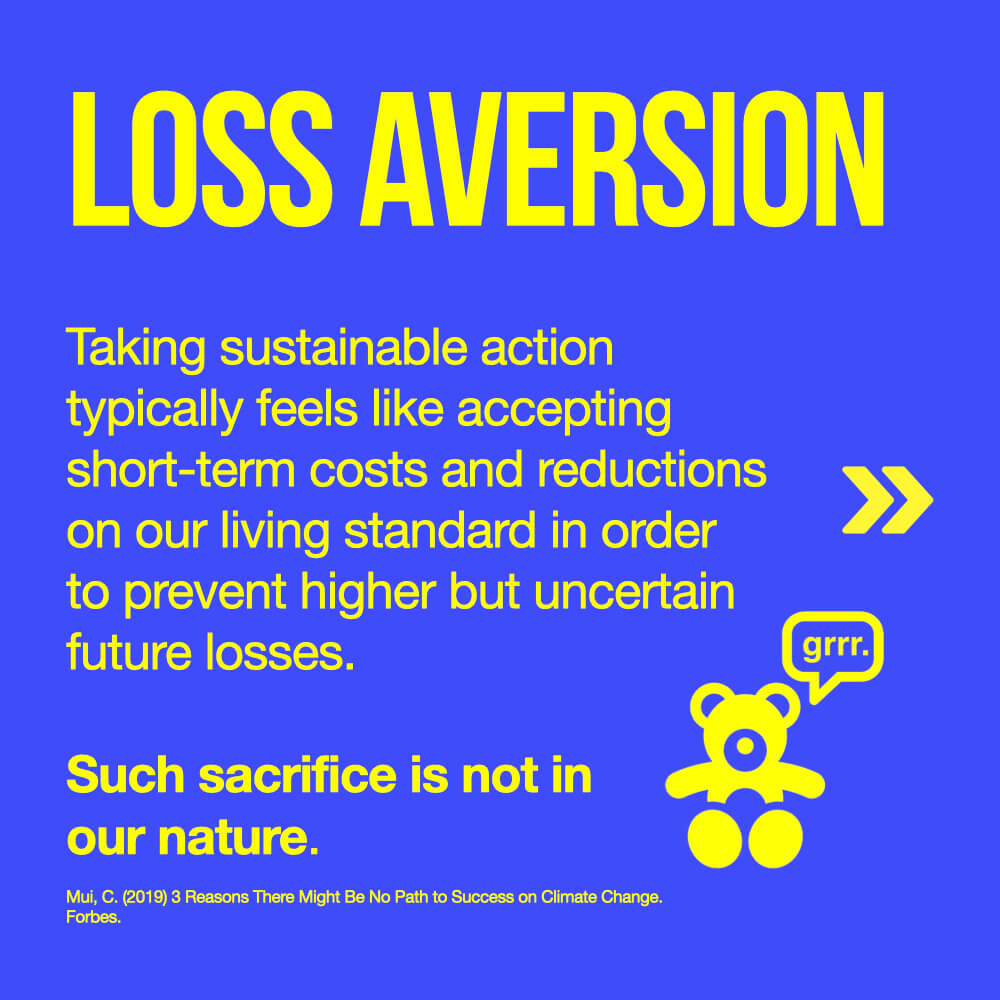
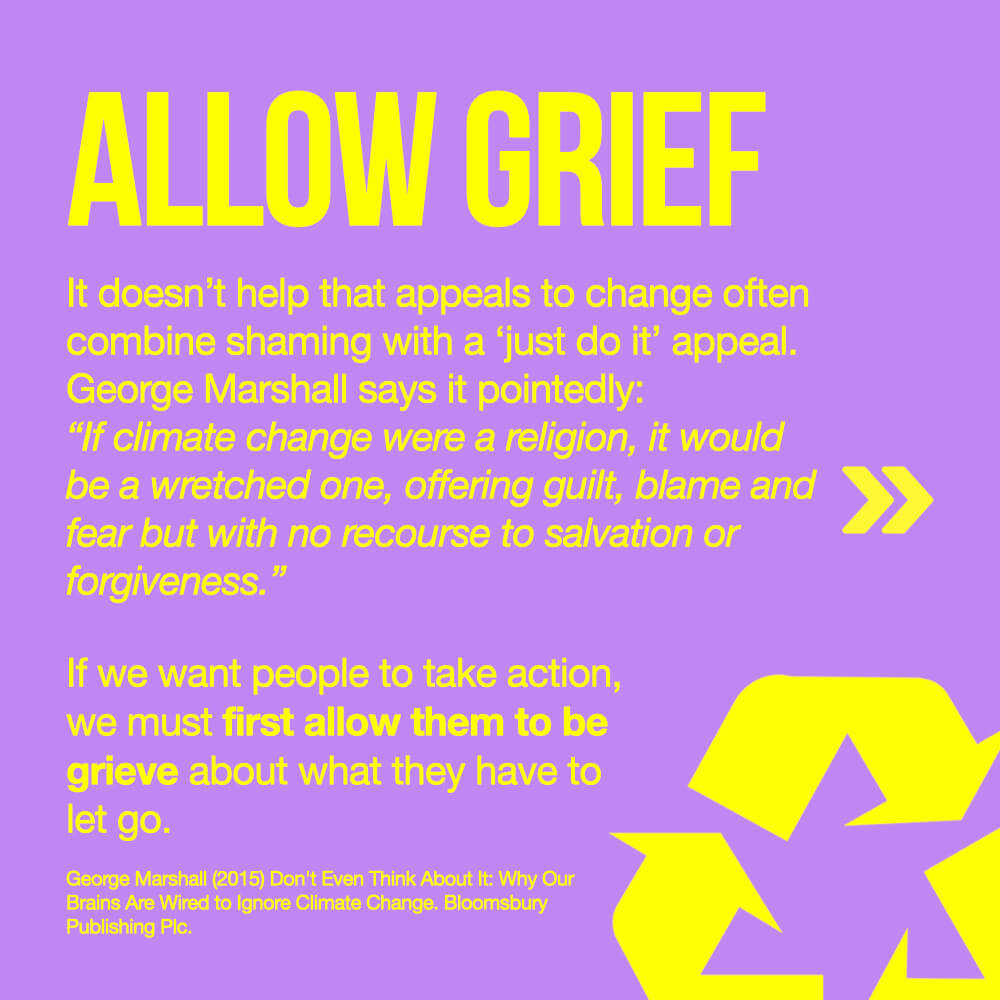
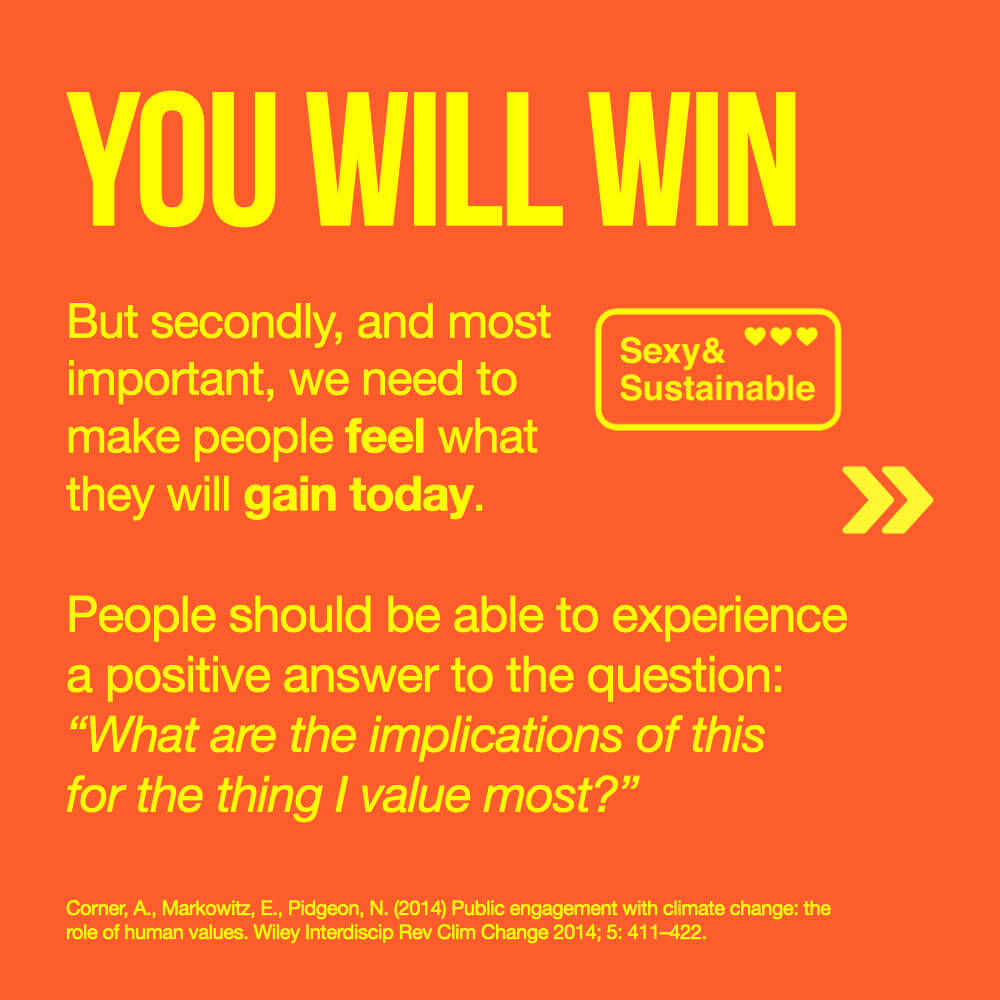
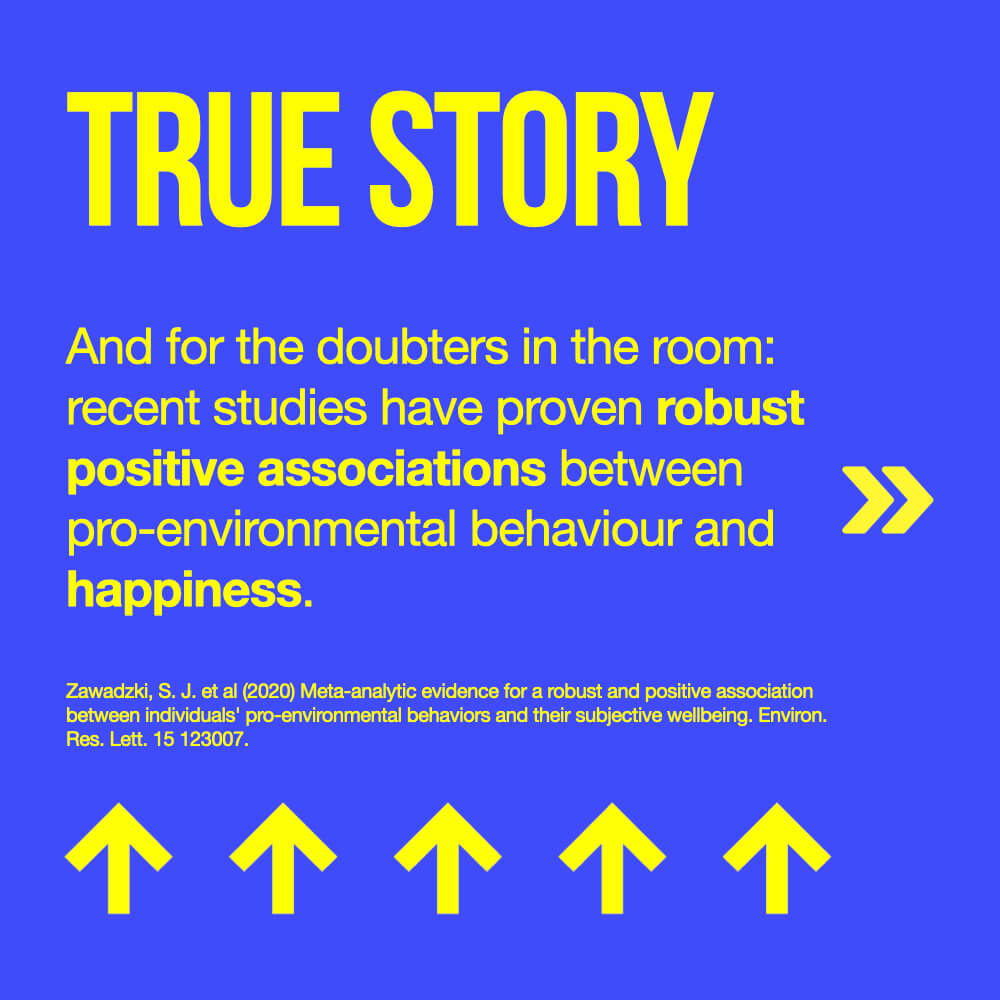
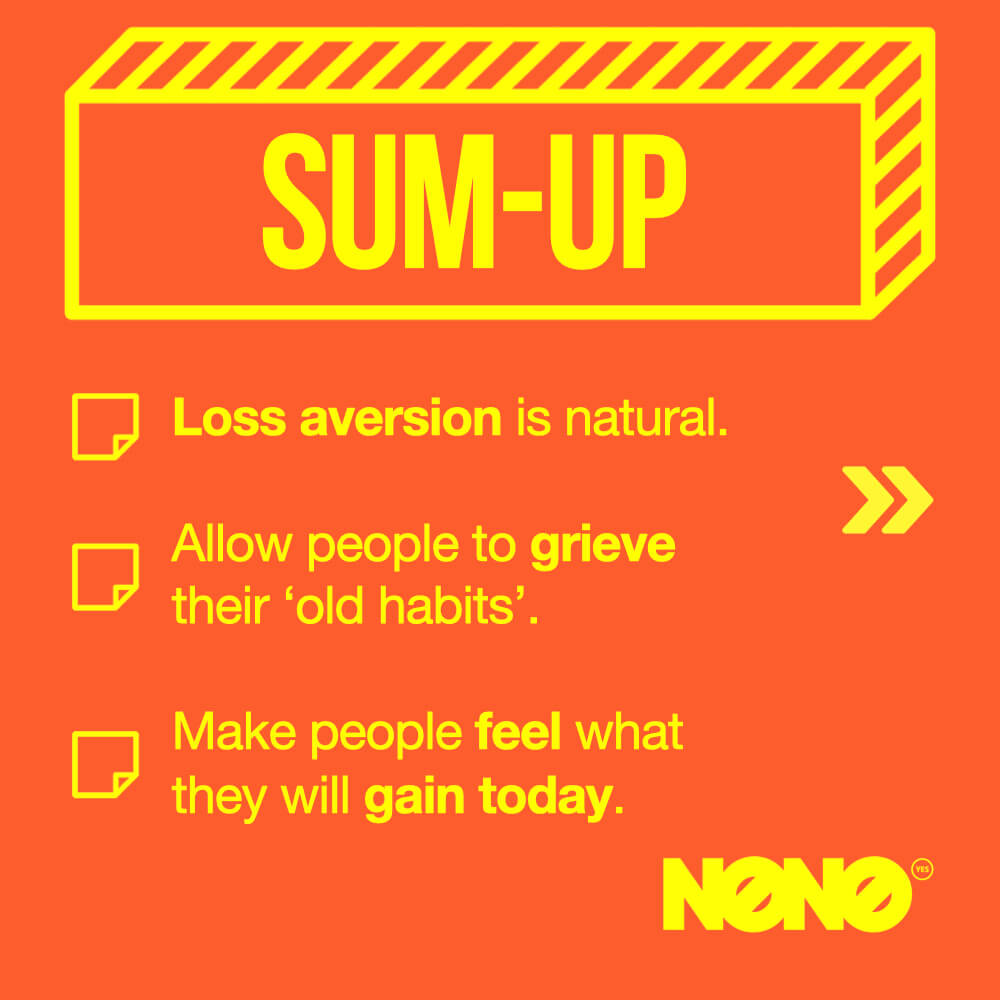
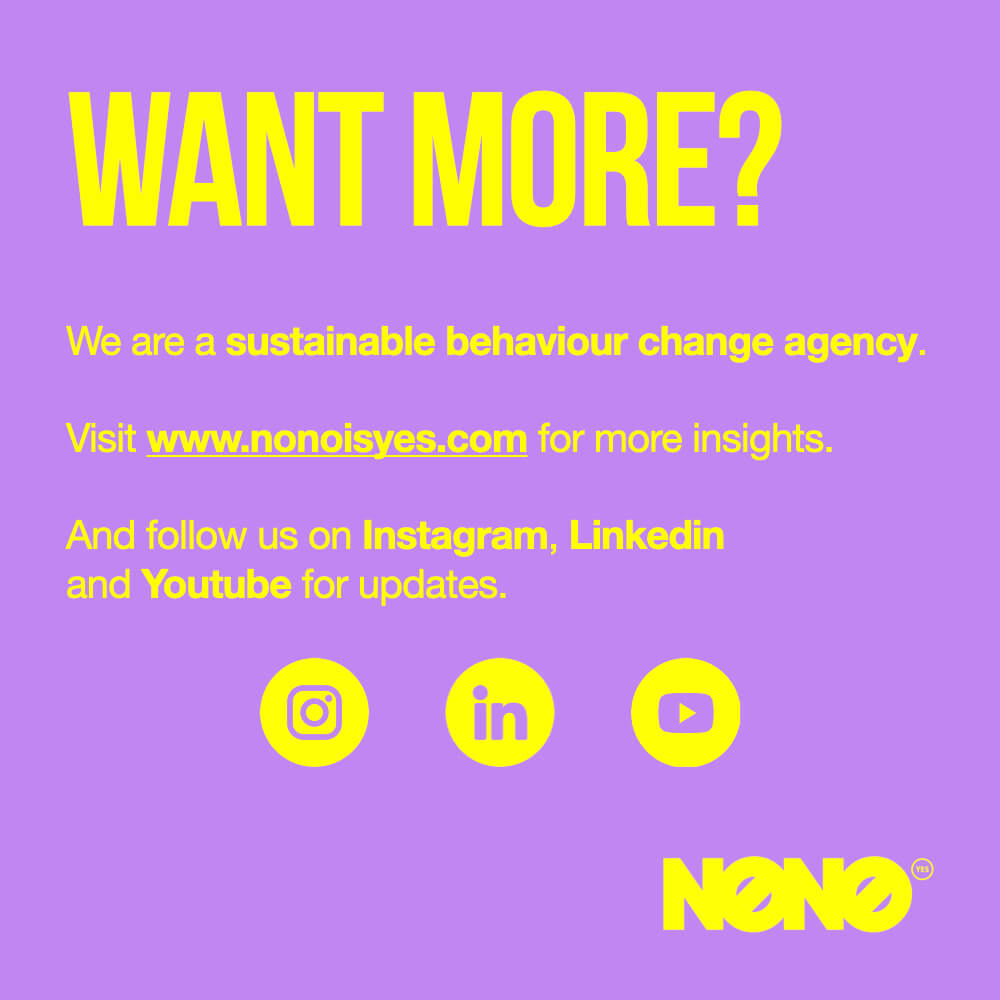
Why is change
so hard?
We will all have to do some things differently to create a sustainable world. We will have to do some new things. And we will have to let go of some things …
Loss aversion
Taking sustainable action typically feels like accepting short-term costs and reductions on our living standard in order to prevent higher but uncertain future losses. Such sacrifice is not in our nature.
Allow grief
It doesn’t help that appeals to change often combine shaming with a ‘just do it’ appeal. George Marshall says it pointedly: “If climate change were a religion, it would be a wretched one, offering guilt, blame and fear but with no recourse to salvation or forgiveness.”
If we want people to take action, we must first allow them to be grieve about what they have to let go.
You will win
But secondly, and most important, we need to make people feel what they will gain today.
People should be able to experience a positive answer to the question: “What are the implications of this for the thing I value most?”
1. Mui, C. (2019) 3 Reasons There Might Be No Path to Success on Climate Change. Forbes.
2. George Marshall (2015) Don’t Even Think About It: Why Our Brains Are Wired to Ignore Climate Change. Bloomsbury Publishing Plc.
3. Corner, A., Markowitz, E., Pidgeon, N. (2014) Public engagement with climate change: the role of human values. Wiley Interdiscip Rev Clim Change 2014; 5: 411–422.
4. Zawadzki, S. J. et al (2020) Meta-analytic evidence for a robust and positive association between individuals’ pro-environmental behaviors and their subjective wellbeing. Environ. Res. Lett. 15 123007.








True story
And for the doubters in the room: recent studies have proven robust positive associations between pro-environmental behaviour and happiness.
Sum-up
- ● Loss aversion is natural.
- ● Allow people to grieve their ‘old habits’.
- ● Make people feel what they will gain today.
1. Mui, C. (2019) 3 Reasons There Might Be No Path to Success on Climate Change. Forbes.
2. George Marshall (2015) Don’t Even Think About It: Why Our Brains Are Wired to Ignore Climate Change. Bloomsbury Publishing Plc.
3. Corner, A., Markowitz, E., Pidgeon, N. (2014) Public engagement with climate change: the role of human values. Wiley Interdiscip Rev Clim Change 2014; 5: 411–422.
4. Zawadzki, S. J. et al (2020) Meta-analytic evidence for a robust and positive association between individuals’ pro-environmental behaviors and their subjective wellbeing. Environ. Res. Lett. 15 123007.